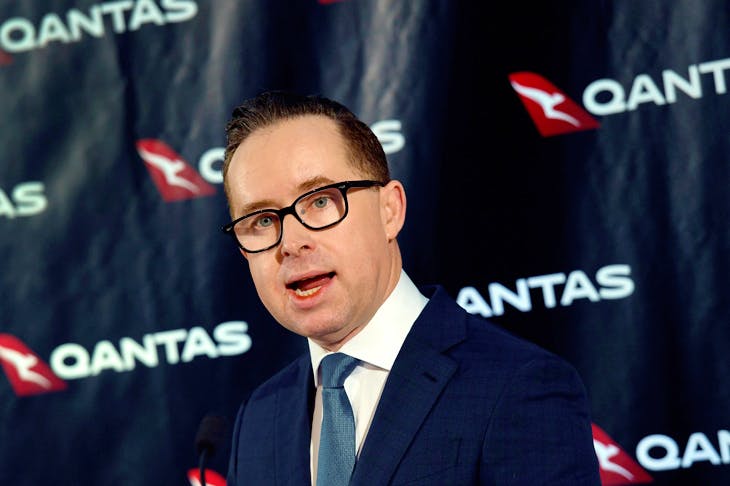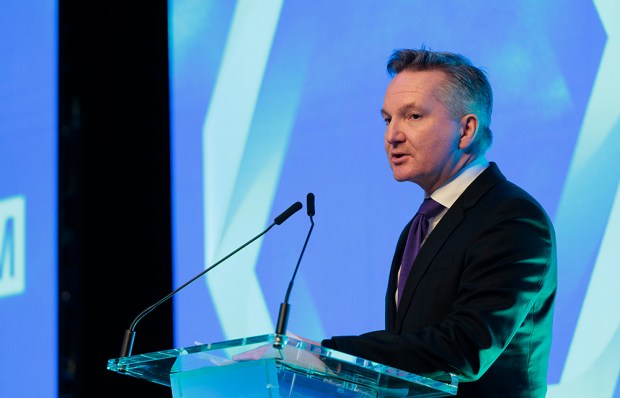It really works! When the big end of town puts its mind to it (along with a few million dollars), it can have a significant political impact. Just ask Brendon Grylls, who this month became the ex-leader of WA’s recalcitrant National Party and the ex-member for the heavily mining–oriented seat of Pilbara. Grylls, as an uncomfortable coalition partner in the now-defeated Barnett government, was the tail that tried to wag the Liberal dog with a hare-brained scheme to impose an extra $5-a-tonne levy on iron ore on top of the taxes of $19 a tonne already being paid. It was killed off by an effective Mining Industry advertising campaign that it was bad for jobs and would be a disaster for the Pilbara – and that convinced the Labor opposition. So the scheme died with the Barnett government on March 11.
But don’t hold your breath waiting for the business community in the eastern states to replicate this highly successful corporate political intervention – and particularly not in the run-up to an election. At present, many CEOs are preferring to use their corporate status to express in public their private views on such ‘vital’ commercial issues affecting their shareholders as the need for the government to break its election undertaking to hold a plebiscite on so-called ‘marriage equality’ because Labor in the Senate has blocked it by reneging on its undertaking of support. This public attempt to sabotage government policy reflects only in part an extraordinary list of more than a hundred major corporations who, without reference to their owners (the shareholders) and in some instances their boards of directors, have become ‘Marriage equality corporate supporters’. A few corporate pragmatists simply want a parliamentary vote to get the issue out of the way ‘so we can focus on some of the core economic problems facing Australia’ (a view they have not been prepared to extend in public to a matter of much greater significance – the need to correct the assault on our basic freedom of speech in section 18C of the Racial Discrimination Act).
But where are the corporate campaigns to gather public support for the things that are of vital importance to business? What are the BCA, the AiG, the ACCI and all those chairs and CEOs who are happy to parade their social consciences in public, doing to convince voters of the necessity for the government, despite Labor opposition, to cut government spending, cut budget deficits, cut company taxes, implement the adjudicated cuts to Sunday and holiday penalty rates and to guarantee energy security ahead of meeting doctrinaire alternative targets?
Except for WA, the big end of town has proved itself reluctant to dirty its hands in any robust and effective political defence of its vital interests; discreet expressions of concern in a press release or two, a submission to an enquiry and even a couple of strongly worded speeches are apparently enough to prompt comments like the Business Council of Australia’s Jennifer Westacott’s that no-one has been arguing harder than her on issues such as tax reform. But speeches, submissions and press releases do not a campaign make; it requires a WA-style commitment – and cash.
Where, for example, is the corporate sector’s public-oriented WA-like response to the inevitable Labor/union campaign against the Fair Work Commission’s relatively modest cuts in Sunday and holiday penalty rates? If fairness is the issue, why is there no campaign based on tough-minded comparisons between the artificially high penalty rates for unskilled workers compared with the normal wages of skilled tradesmen and professionals? Is it fair that unskilled casual fast food workers, many of whom prefer to work on public holidays, should be paid $190 more for a full day’s work (or 80 per cent more to be cut back to a still excessive 70 per cent) than the normal daily wage of a highly skilled intensive care nurse? Why should an unskilled shop assistant working on a holiday get paid $95 or one third above a fully qualified relief teacher’s normal daily rate? The government, through largely its own fault, no longer has the ear or trust of the electorate. If the corporate sector is serious about its objectives, it will have to become involved.
It’s how the West was won.
Got something to add? Join the discussion and comment below.
Get 10 issues for just $10
Subscribe to The Spectator Australia today for the next 10 magazine issues, plus full online access, for just $10.
You might disagree with half of it, but you’ll enjoy reading all of it. Try your first month for free, then just $2 a week for the remainder of your first year.














Comments
Don't miss out
Join the conversation with other Spectator Australia readers. Subscribe to leave a comment.
SUBSCRIBEAlready a subscriber? Log in